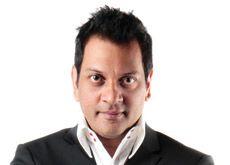As surprises go, finding out that the King of Jordan and the King of Morocco have a fair bit of cash stashed away in secret Swiss bank accounts isn’t much of a surprise. So what? Why shouldn’t they? And there’s nothing illegal about it.
But HSBC’s problems, which erupted last week after the leaking of 60,000 confidential documents, are not about the finances of super-rich royals and celebrities being made public.
It is the “other stuff” that makes uncomfortable reading, and deserves to put many of the bank’s executives in the dock. For we now know that the company that claims to be the “world’s local bank” has been equally busy sorting out tax-free finances for drug dealers, gangsters and dictators. For the right price, just about anyone has been able to open an HSBC Swiss bank account, no questions asked. And further been allowed to carry bundles of cash — totalling several millions of dollars — out of their accounts. Hundreds, possibly billions of dollars’ worth of tax has been evaded and black money given a silver home. It has been a monumental scam and a monumental sham that even the “Wolf of Wall Street” Jordan Belfort would be hard pressed to top.
So what should happen now? The biggest problem for the banking and legal community is the smell of double standards. Across the world, thousands of people have been prosecuted for evading minute amounts of tax. Try and hide a few thousand dollars and get caught, chances are you will face the full force of the law. In some countries like the UK, claim extra benefits that you are not really entitled to, and the police will be round your house pretty fast. Jail time, if you get caught, is almost certain.
But if you happen to be a billionaire who made his fortune from drug dealing, welcome to the HSBC VIP suite — and don’t worry about the cops, we won’t tell if you don’t. So far in the UK (where the authorities have had this information for four years), there has been just one prosecution.
Now is the time for the authorities to ask big questions. The leaked documents show that HSBC set up 1,702 accounts for 1,126 UAE-based clients. They show that 91 percent of these clients were expats, with just 9 percent holding Emirati passports (it is reasonable to assume that Emiratis generally don’t need to avoid paying tax). The maximum amount held by a single UAE client was $800m. Who are these people? Where has their money come from, and is it taxable? If they have broken the law, they MUST be prosecuted.
As for HSBC itself, what does it have to say? Franco Morra, CEO, HSBC Private Bank (Suisse) SA, told Arabian Business in a statement: “We have no appetite for business with clients or potential clients who do not meet our financial crime compliance standards. These disclosures about historical business practices are a reminder that the old business model of Swiss private banking is no longer acceptable.”
The problem is, HSBC is the problem, not the solution. Nobody can trust it any more, until at the very least the senior executives involved during the time period the leaks refer to are brought to justice. Until then, the world’s local bank is globally damaged goods.







